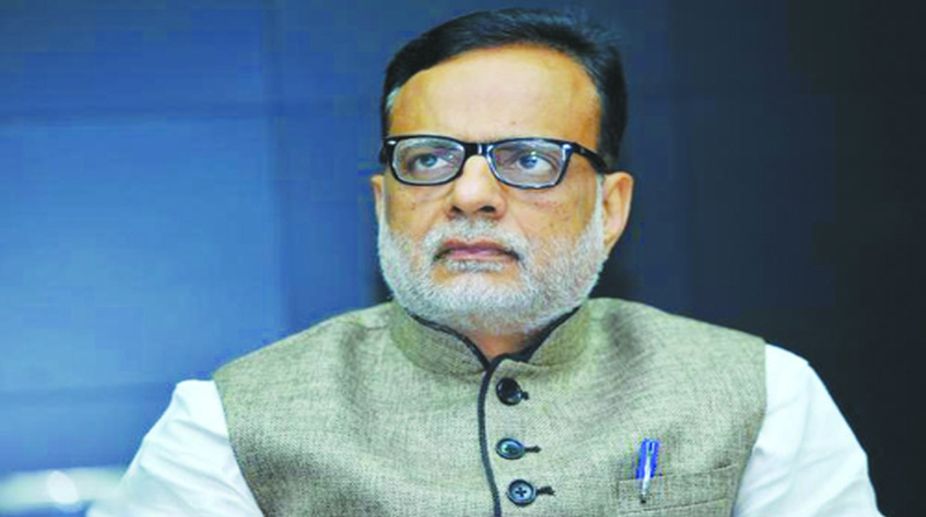In a bid to allay fears on the blood bath in the stock market, Finance and Revenue Secretary Hasmukh Adhia on Monday said the huge sell-off in equity markets is due to weak global sentiment and not because of the imposition of long term capital gains tax (LTCG) announced in the Budget.
“If the entire world’s index has gone down by 3.4 per cent, naturally it will have it’s ripple effect in Indian stock exchange also. So it is not LTCG effect. Because you have grandfathered LTCG effect should not be there. Why should you do a distress sale now?” Adhia said at a post-budget meet organised by industry body Confederation of Indian Industry (CII).
Advertisement
He said, “There is nothing that you are going to lose by selling it immediately. So it’s not the effect of LTCG tax, it is the overall index of the equity market which has changed in other countries of the world.” The Indian stock markets are undergoing a bear phase with the BSE Sensex crashing more than 1,600 points since the Budget was presented while the Nifty index had fallen to a near one-month low.
Finance Minister Arun Jaitley, in his Budget for 2018-19, imposed a 10 per cent tax on LTCG of over Rs 1 lakh made on sale of shares from 1 April. At present, there is a 15 per cent tax on short-term capital gains made of sale of shares within one year of purchase. However, gains made after a year of purchase is exempt from any tax.
Nilesh Shah, managing director, Kotak Asset Management Company, said, “I think we should not be blaming LTCG because it has been introduced with grandfathering. This is probably a function of two factors ~ cost of capital has started moving up and the other thing is that the valuations were also very high.” Chief Economic Adviser Arvind Subramanian, while presenting the Economic Survey 2017-18, also called for higher vigilance and staged a probability of sharp corrections in elevated stock prices.
Subramanian hinted at a stock market bubble and said, “We have seen around the world that when asset prices go up very much they always tend to come back and so we have to be watchful. The higher the prices go I think our vigilance should increase correspondingly.”
However, market experts believe than a tiny increase in Securities Transaction Tax (STT) would have garnered more resources with better efficiency, if revenue mobilisation was the requirement. But Adhia noted that the income of government from STT is a paltry Rs 9,000 crore.
The government is betting big on the LTCG on equities for mobilising revenue as currently the amount of income earned from the stock markets that is exempted from this tax works out to a whopping Rs 3.76 lakh crore which would translate into a tax collection to the tune of Rs 37,000 crore going ahead.
Adhia added that there is “unevenness” in the taxes paid by the salaried class and business people, as 50 per cent of the 7 lakh companies which file I-T returns show zero or negative income. Adhia said the government is working on removing the “unevenness in the tax paid by different classes of people” by using a foolproof technological system.
On GST, Adhia said that e-way bill and invoice matching in the new indirect tax regime will help curb evasion. The government’s efforts to make everyone come under the tax net will continue with big data analytics.











